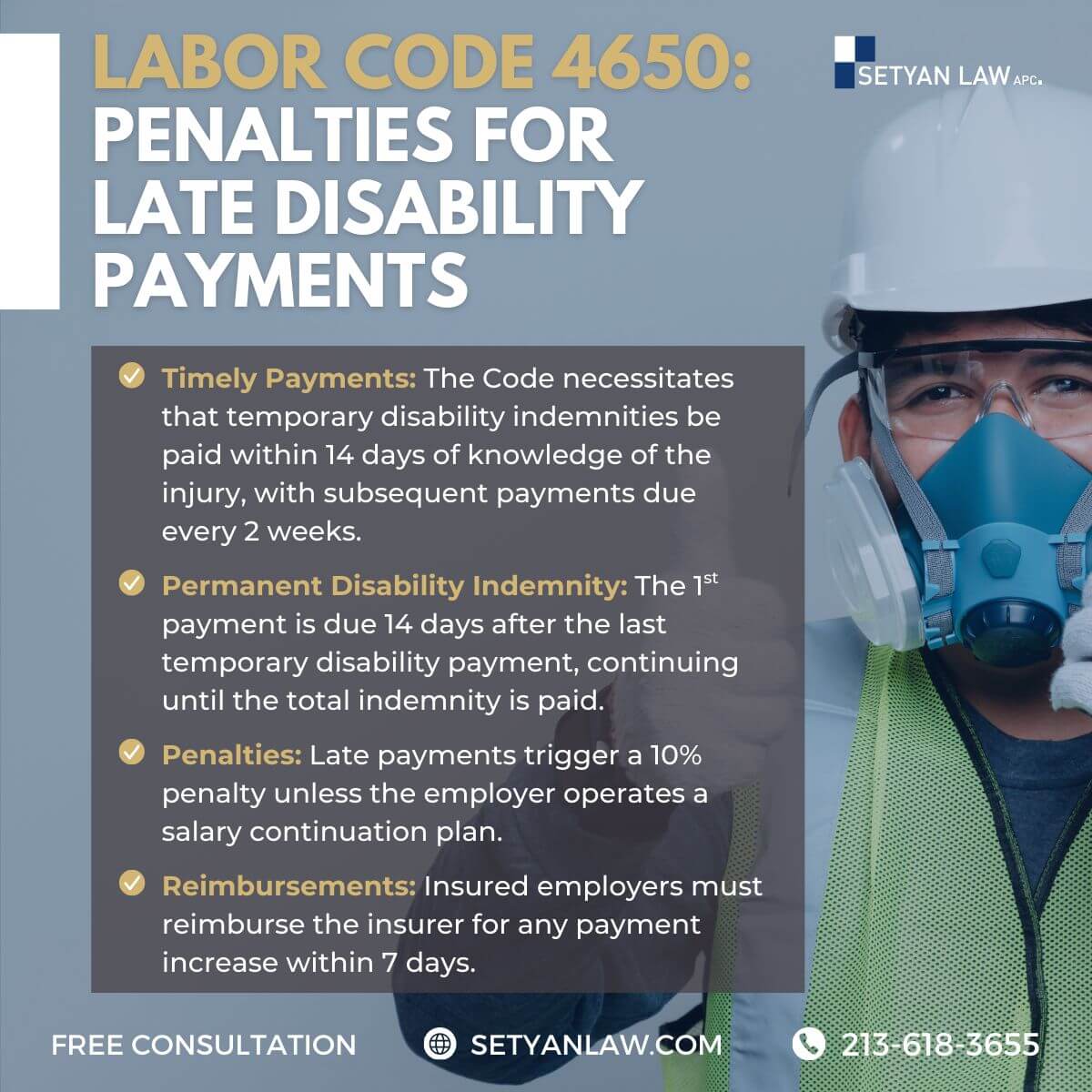Updated June 26, 2025
Disability Discrimination at the Office
Disability discrimination in the workplace is a pervasive problem, one that can have devastating effects on an individual’s career and life. However, there are legal protections in place for those who may be facing disability discrimination, and there are steps you can take to build a case and prove disability discrimination in the workplace. In this comprehensive guide, we’ll cover what disability discrimination is, how to prove disability discrimination, the laws and regulations that govern disability discrimination cases, how to prepare for a disability discrimination case, and the resources available for assistance.
Disability discrimination in the workplace occurs when an employer takes an adverse action against an individual due to their disability or perceived disability. This could include refusing to hire, firing, demoting, or otherwise discriminating against an individual because of their disability. Disability discrimination is illegal in the United States, and employers must comply with the Americans with Disabilities Act (ADA) and other federal and state legislation in order to protect disabled employees.
It’s important to understand that disability discrimination is not only illegal, but it can have serious consequences for those who experience it. Not only can it result in job loss, but it can also lead to lost wages, emotional distress, and other forms of harm. If you believe you have been the victim of disability discrimination, it’s important to take action in order to protect your rights and seek justice.
Legal Definition of Disability Discrimination
Disability discrimination occurs when an employer takes an adverse action against an individual due to their disability or perceived disability. This could include refusing to hire, firing, demoting, or otherwise discriminating against an individual because of their disability. This type of discrimination is illegal under the Americans with Disabilities Act (ADA), and employers must comply with this federal and state legislation in order to protect disabled employees.
The ADA and other disability discrimination laws seek to protect individuals from unequal treatment due to their disability. Employers are prohibited from discriminating against individuals with disabilities in any aspect of employment, including hiring, firing, promotion, and compensation. Employers must also make reasonable accommodations for employees with disabilities, such as providing assistive devices, modifying work schedules, and providing necessary training.
It’s also important to understand that disability discrimination can take many forms, from subtle acts of exclusion to outright discrimination. Disability discrimination can manifest in a variety of ways, including discriminatory comments, unequal access to resources or opportunities, and refusal to provide reasonable accommodations.
Types of Disability Discrimination
There are several types of disability discrimination that employers should be aware of. The most common types of disability discrimination include:
Refusal to hire: Employers cannot refuse to hire someone due to their disability.
Unequal pay: Employers cannot pay an employee with a disability less than an employee without a disability for the same job.
Unfavorable employment terms: Employers cannot provide employees with disabilities less favorable job terms than those provided to employees without disabilities.
Failure to provide reasonable accommodations: Employers are required to make reasonable accommodations for employees with disabilities, such as providing assistive devices, modifying work schedules, and providing necessary training.
Harassment: Employers cannot harass or discriminate against employees with disabilities. This includes making discriminatory comments, exclusion from activities or opportunities, or any other form of harassment.
Examples of Disability Discrimination
Examples of disability discrimination can include:
- An employer refuses to hire an individual with a disability.
- An employer pays an employee with a disability less than an employee without a disability for the same job.
- An employer fails to provide an employee with a disability with the same resources or opportunities as an employee without a disability.
- An employer fails to provide reasonable accommodations for an employee with a disability, such as providing assistive devices, modifying work schedules, or providing necessary training.
- An employer harasses or discriminates against an employee with a disability, such as making discriminatory comments, excluding them from activities or opportunities, or any other form of harassment.
How to Prove Disability Discrimination
In order to prove disability discrimination, you must be able to demonstrate that your employer took an adverse action against you due to your disability or perceived disability. This could include being refused a job, demoted, or otherwise discriminated against based on your disability. In order to prove your case, you must be able to show that your employer had knowledge of your disability or believed you had a disability, and that the action taken was directly related to your disability.
In addition to demonstrating that your employer took an adverse action due to your disability, you must also be able to demonstrate that you were treated differently than other employees without disabilities. This could include being paid less or having less access to resources or opportunities. You must also be able to demonstrate that the employer failed to provide reasonable accommodations for your disability.
Common Types of Evidence Used to Prove Disability Discrimination
Common types of evidence used to prove disability discrimination include:
- Documentation of the adverse action taken against you, such as termination letters, emails, or other correspondence.
- Documentation of your disability or perceived disability, such as medical records or statements from healthcare providers.
- Documentation of unequal treatment, such as pay stubs or job postings.
- Documentation of the employer’s failure to provide reasonable accommodations, such as emails or other correspondence.
- Witness statements from other employees or individuals who witnessed the discrimination.
Disability Discrimination and the Law
Disability discrimination is illegal in the United States and is prohibited under the Americans with Disabilities Act (ADA) and other federal and state legislation. The ADA prohibits employers from taking any adverse action against an individual due to their disability or perceived disability. Employers must also make reasonable accommodations for employees with disabilities, such as providing assistive devices, modifying work schedules, and providing necessary training.
It’s important to understand that disability discrimination laws vary from state to state, so it’s important to be familiar with the laws and regulations that govern disability discrimination in your state. In addition, some states have their own disability discrimination laws, so it’s important to be familiar with the laws in your state as well.
Understanding the Laws and Regulations for Disability Discrimination in California
California is one of the states that has its own set of laws and regulations for disability discrimination. California’s disability discrimination laws are governed by the California Fair Employment and Housing Act (FEHA). Under the FEHA, it is illegal for employers to discriminate against individuals due to their disability or perceived disability. Employers must also make reasonable accommodations for employees with disabilities, such as providing assistive devices, modifying work schedules, and providing necessary training.
In addition, the FEHA prohibits employers from taking any adverse action against an individual due to their disability or perceived disability. This includes refusing to hire, firing, demoting, or otherwise discriminating against an individual because of their disability. Employers must also provide equal access to resources and opportunities for employees with disabilities.
How to File a Disability Discrimination Complaint
If you believe you have been the victim of disability discrimination, you have the right to file a complaint with the California Department of Fair Employment and Housing (DFEH). The DFEH is responsible for investigating claims of disability discrimination in California. You can file a complaint with the DFEH either online or by mail.
Once you have filed a disability discrimination complaint, the DFEH will review your complaint and may contact you for additional information. The DFEH may also contact your employer to get their side of the story. After reviewing your complaint and any additional information, the DFEH will determine whether or not to open an investigation. If the DFEH does open an investigation, they will contact you and your employer to arrange meetings and collect additional information.
How to Prepare for a Disability Discrimination Case
If you believe you have been the victim of disability discrimination, it’s important to prepare for a potential case. First, you should document any evidence of discrimination, such as emails, letters, or other correspondence. You should also collect any documents or other evidence that can demonstrate that your employer was aware of your disability or perceived disability, such as medical records or statements from healthcare providers.
In addition, you should document any unequal treatment you experienced, such as pay stubs or job postings. You should also collect any evidence of the employer’s failure to provide reasonable accommodations for your disability, such as emails or other correspondence. Finally, you should collect any witness statements from other employees or individuals who witnessed the discrimination.
Resources for Disability Discrimination Cases
If you believe you have been the victim of disability discrimination, there are several resources available to assist you. The California Department of Fair Employment and Housing (DFEH) is responsible for investigating claims of disability discrimination in California. The DFEH can provide assistance in filing a complaint, as well as provide information about the laws and regulations that govern disability discrimination in California.
In addition, there are several organizations that provide legal assistance to those who have experienced disability discrimination. These organizations include the California Employment Lawyers Association (CELA), the National Employment Lawyers Association (NELA), and the Disability Rights Education and Defense Fund (DREDF).
Conclusion
Disability discrimination in the workplace is a pervasive problem, one that can have devastating effects on an individual’s career and life. Fortunately, there are legal protections in place for those who may be facing disability discrimination, and there are steps you can take to build a case and prove disability discrimination in the workplace. In this comprehensive guide, we’ve covered what disability discrimination is, how to prove disability discrimination, the laws and regulations that govern disability discrimination cases, how to prepare for a disability discrimination case, and the resources available for assistance. If you believe you have been the victim of disability discrimination, it’s important to take action in order to protect your rights and seek justice.
If you believe you have experienced disability discrimination in the workplace, the California Department of Fair Employment and Housing (DFEH) can provide assistance in filing a complaint and provide information about the laws and regulations that govern disability discrimination in California. There are also several organizations that provide legal assistance to those who have experienced disability discrimination, such as the California Employment Lawyers Association (CELA), the National Employment Lawyers Association (NELA), and the Disability Rights Education and Defense Fund (DREDF).
It’s important to remember that disability discrimination is illegal in the United States, and employers must comply with the Americans with Disabilities Act (ADA) and other federal and state legislation in order to protect disabled employees. If you believe you have been the victim of disability discrimination, it’s important to take action in order to protect your rights and seek justice.
California employment cases can be complex. Your employer will likely fight back. You need someone on your side to protect your rights and get the money you deserve.
Call Setyan Law at (213)-618-3655 for a consultation.






